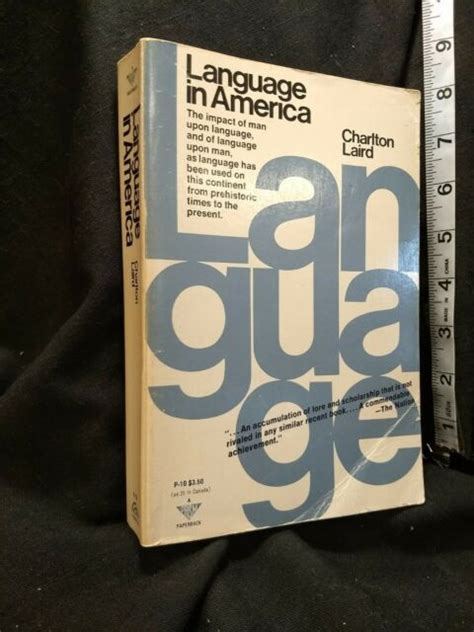A Quote by Bill Bryson
English grammar is so complex and confusing for the one very simple reason that its rules and terminology are based on Latin, a language with which it has precious little in common.
Related Quotes
English grammar is so complex and confusing for the one very simple reason that its rules and terminology are based on Latin - a language with which it has precious little in common. In Latin, to take one example, it is not possible to split an infinitive. So in English, the early authorities decided, it should not be possible to split an infinitive either. But there is no reason why we shouldn't, any more than we should forsake instant coffee and air travel because they weren't available to the Romans.
By a generative grammar I mean simply a system of rules that in some explicit and well-defined way assigns structural descriptions to sentences. Obviously, every speaker of a language has mastered and internalized a generative grammar that expresses his knowledge of his language. This is not to say that he is aware of the rules of the grammar or even that he can become aware of them, or that his statements about his intuitive knowledge of the language are necessarily accurate.
Malcolm Bradbury made the point, and I don't know whether it's a valid one or not, that the real English at the moment is not the English spoken in England or in America or even in Canada or Australia or New Zealand. The real English is the English which is a second language, so that it's rather like Latin in the days of the Roman Empire when people had their own languages, but had Latin in order to communicate.
James Joyce's English was based on the rhythm of the Irish language. He wrote things that shocked English language speakers but he was thinking in Gaelic. I've sung songs that if they were in English, would have been banned too. The psyche of the Irish language is completely different to the English-speaking world.
I work in Hebrew. Hebrew is deeply inspired by other languages. Not now, for the last three thousand years, Hebrew has been penetrated and fertilized by ancient Semitic languages - by Aramaic, by Greek, by Latin, by Arabic, by Yiddish, by Latino, by German, by Russian, by English, I could go on and on. It's very much like English. The English language took in many many fertilizations, many many genes, from other languages, from foreign languages - Latin, French, Nordic languages, German, Scandinavian languages. Every language has influences and is an influence.
The revival of Hebrew, as a spoken language, is a fascinating story, which I'm afraid I cannot squeeze into a few sentences. But, let me give you a clue. Think about Elizabethan English, where the entire English language behaved pretty much like molten lava, like a volcano in mid-eruption. Modern Hebrew has some things in common with Elizabethan English. It is being reshaped and it's expanding very rapidly in various directions. This is not to say that every one of us Israeli writers is a William Shakespeare, but there is a certain similarity to Elizabethan English.
I loved Latin -- the grammar, the difficult tenses, the history -- but for some reason I was very bad at it, shamefully and blushingly bad at it. ... In moments of stress the embarrassment of how bad I was at Latin -- a subject I loved -- really hit me. It was like being laughed at by someone you desperately loved.



































